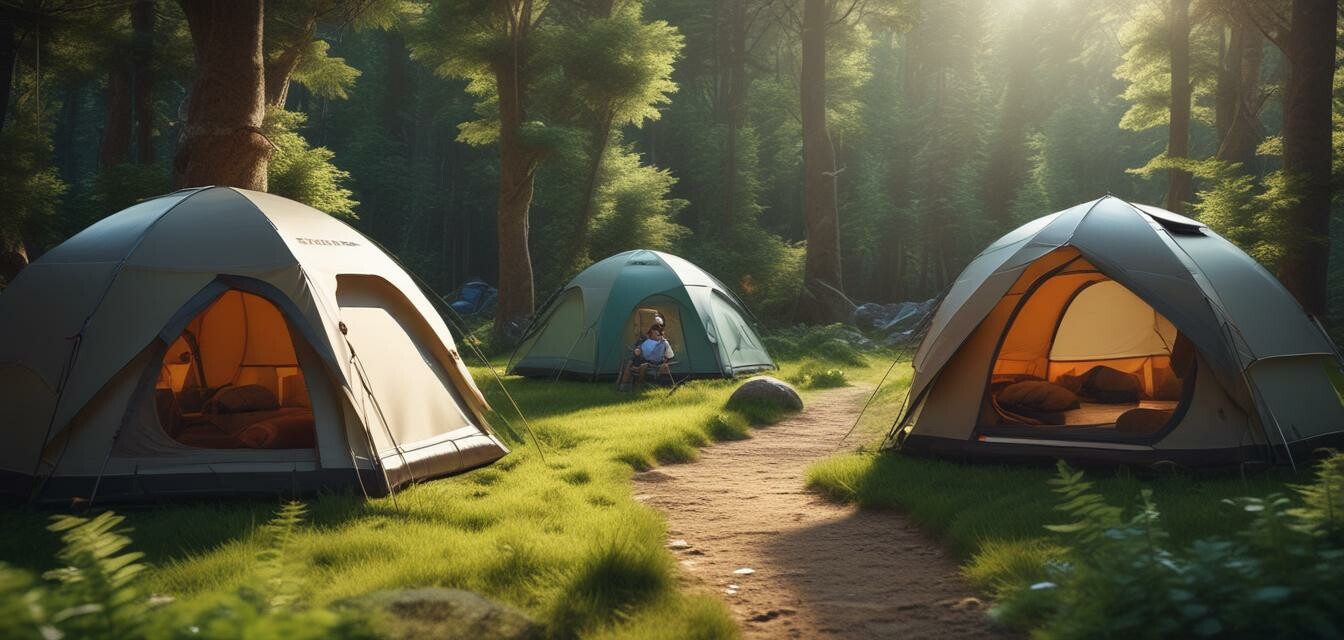
The Future of Camping: Trends to Expect Beyond 2024
Key Takeaways
- Emphasis on eco-friendly and sustainable camping gear.
- The rise of smart camping technology for enhanced experiences.
- Innovative materials leading to lighter and more durable equipment.
- Increased popularity of camping as a holistic health activity.
- Enhanced community and social engagement through camping events.
As we look towards the future, camping continues to evolve in response to the changing preferences of outdoor enthusiasts. The industry is poised to see a wave of exciting innovations and trends that will shape the camping experience in 2025 and beyond. In this article, we will delve into the anticipated trends that are likely to redefine our time spent in nature, including advances in gear, practices that focus on sustainability, and the growing connection between technology and camping.
1. Eco-friendly and Sustainable Camping Gear
There is an unmistakable shift towards sustainability in many industries, and camping gear is no exception. With rising awareness about environmental issues, campers are increasingly looking for eco-friendly products that minimize impact on the environment. Expect to see:
- Biodegradable and recyclable camping equipment.
- Gear made from upcycled materials.
- Solar-powered tools and gadgets.
- Minimalist designs that reduce waste.
For more insights on sustainable camping practices, check our Camping Tips and Tricks.
2. Smart Camping Technology
The integration of technology into camping gear has already begun, but the next few years will see groundbreaking advancements. Smart camping equipment will offer campers the ability to enhance their experience significantly. Potential innovations include:
- App-connected tents that monitor temperature and humidity.
- Portable GPS trackers to improve safety.
- Smart cooking gear that allows precise control over meals.
- Wearable tech for tracking fitness and health metrics while camping.
To dive deeper into tech-savvy camping gear, explore our Camping Buying Guides.
3. Lightweight and Durable Equipment Innovations
As campers demand more functionality without compromising on portability, gear manufacturers are focusing on innovative materials. Upcoming trends may feature:
| Material | Benefits |
|---|---|
| Titanium | Strength, lightweight, and corrosion resistance. |
| Dyneema | Super lightweight, waterproof, and abrasion-resistant. |
| Graphene | Highly durable and offers insulating properties. |
Stay informed about new materials in camping gear by regularly checking our Camping Coolers & Food Storage section.
4. Holistic Health Focus
With an increasing number of people embracing holistic health, camping is being viewed as an avenue to improve mental well-being. Here are some anticipated trends in this area:
- Mindful camping experiences that encourage relaxation.
- Yoga and wellness retreats held in natural settings.
- Communities promoting mindfulness and nature connection.
The fusion of health and outdoor activities will transform how people approach camping, making it more about connection and introspection.
5. Enhanced Camping Communities
The camping community is set to expand as more people participate in outdoor activities. This growth will foster:
- Pop-up camping events and festivals.
- More organized group camping trips.
- Increased online forums and social media groups focused on camping.
Connecting with others who share your passion will become easier, encouraging shared experiences and a sense of belonging. You can find information about upcoming events in our Camping News and Trends section.
Conclusion
The future of camping looks promising as trends towards sustainability, technology, and community begin to take shape. By embracing these innovations, campers can look forward to enriched experiences that connect them more deeply with nature and each other. Stay prepared to explore ways these trends will impact your camping adventures as we step into 2025 and beyond.
Pros
- Eco-friendly innovations that benefit the environment.
- Smart technology enables safer and more enjoyable camping.
- Stronger portable gear allows for adventure without limitations.
- Promotes overall well-being through a connection to nature.
Cons
- Higher costs associated with advanced technology gear.
- Potential reliance on tech could detract from the traditional camping experience.
- Increased popularity may lead to crowded camping areas.